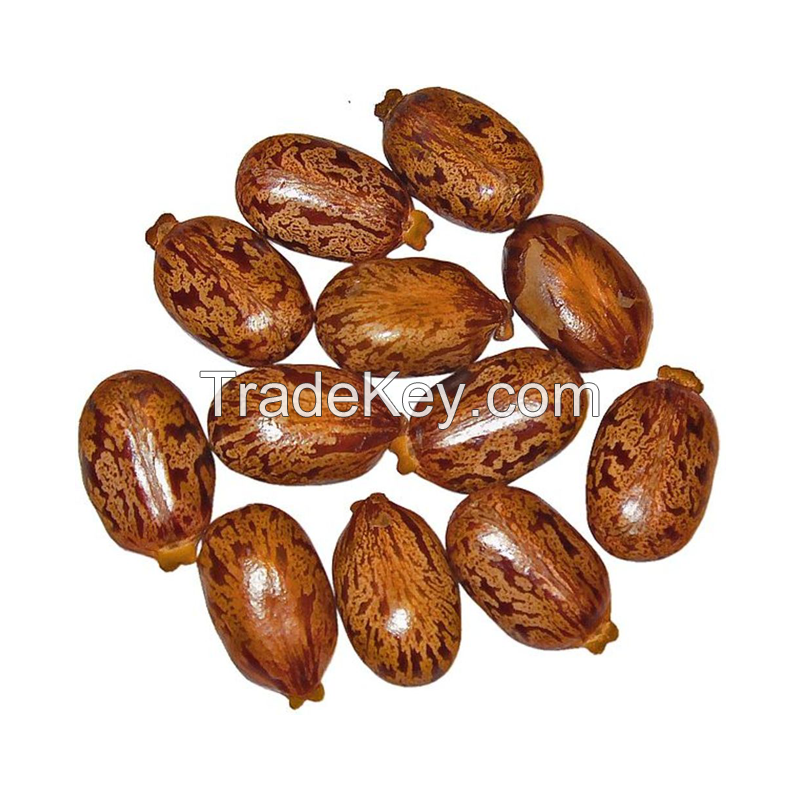
FOB Price
Obtener el precio más reciente230 ~ 330 / Ton
|Minimum Order
Place of Origin:
-
Price for Minimum Order:
Minimum Order Quantity:
10 Ton
Packaging Detail:
As a Customers' Requirement
Delivery Time:
10 to 20 days
Supplying Ability:
10000 Ton per Month
Payment Type:
T/T, Western Union, Money Gram, PayPal
Canada
Castor seeds are the seeds of the castor oil plant, scientifically known as Ricinus communis. Here are some key points about castor seeds:
Appearance: Castor seeds are small, oval-shaped seeds with a glossy, smooth surface. They typically have a mottled appearance, with dark brown or black spots on a lighter background.
Composition: Castor seeds contain a high concentration of oil, ranging from *0% to *0% of their total weight. Castor oil, extracted from these seeds, is a pale yellowish liquid with a distinct odor and taste. The oil is composed mainly of triglycerides, with ricinoleic acid being the primary fatty acid present.
Uses: Castor seeds and castor oil have a wide range of industrial, medicinal, and cosmetic uses:
Toxicity: While castor oil is safe for external and internal use in small amounts, consuming large quantities of raw castor seeds or castor beans can be toxic. Castor seeds contain a naturally occurring toxin called ricin, which is a potent protein toxin. Ricin can cause severe gastrointestinal symptoms, organ damage, and even death if ingested in sufficient quantities. Therefore, it\'s crucial to handle and process castor seeds carefully and avoid ingestion.
Cultivation: The castor oil plant is native to Africa and India but is now cultivated in various regions worldwide, including tropical and subtropical areas. It is a fast-growing and hardy plant that can thrive in diverse soil and climate conditions. Castor seeds are typically sown directly in the ground and require little maintenance once established.
